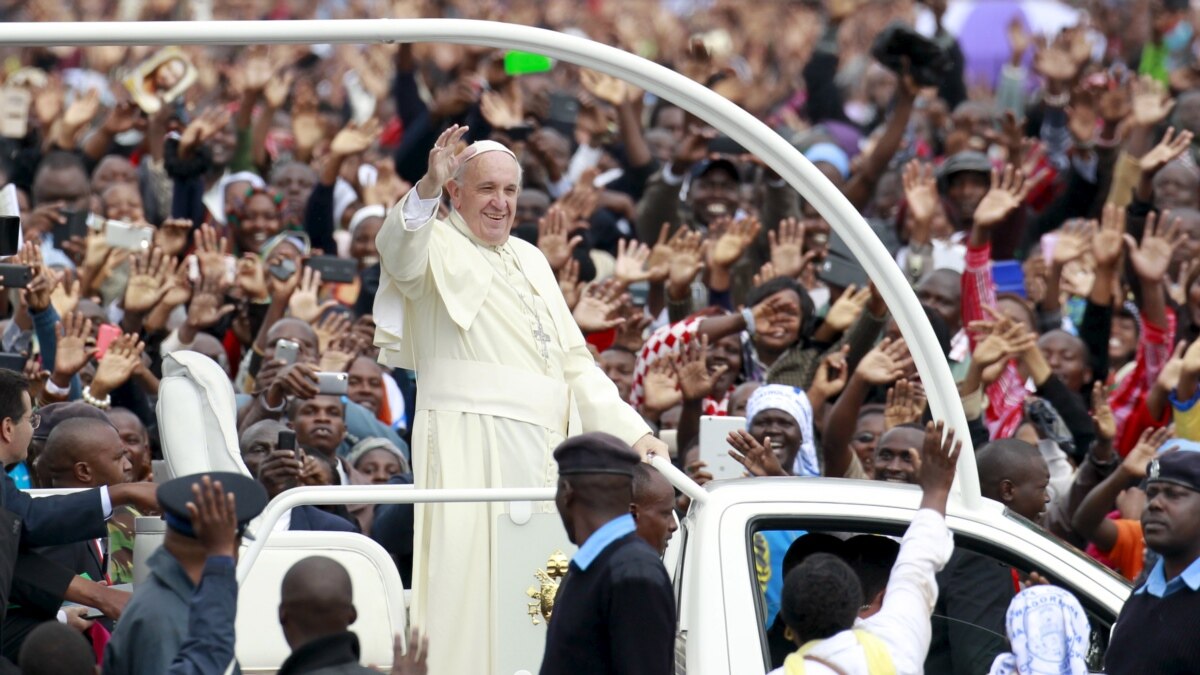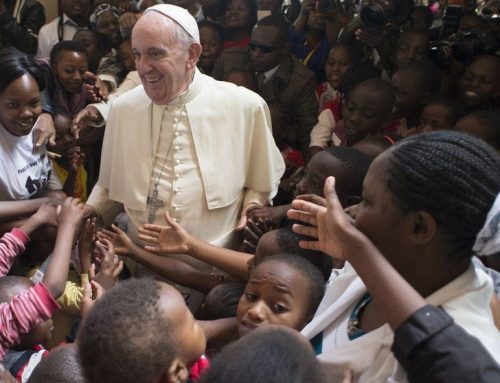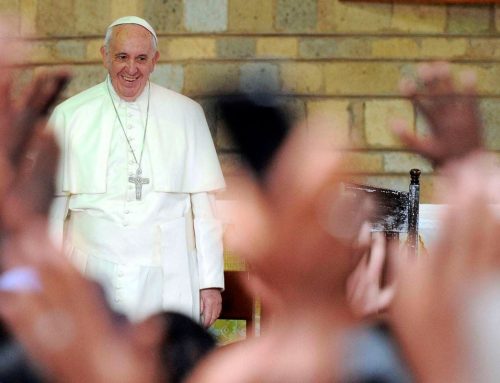The world awoke to sorrow on Easter Monday, April 21, 2025. Pope Francis, the first Jesuit pope and a beloved shepherd of the Catholic Church, passed away at the age of 88. His death was announced by Cardinal Kevin Farrell, speaking on behalf of the Vatican. That he died on Easter Monday—a day symbolizing Christ’s resurrection—felt profoundly symbolic. It marked the conclusion of a life lived in hope, humility, and unwavering service.
The Jesuit Historical Institute in Africa and Hekima University College join global Christian communities in mourning the passing of Papa Francesco while celebrating his remarkable life. Born Jorge Mario Bergoglio on December 17, 1936, in Buenos Aires, Argentina, he was the first child of Italian immigrants who had fled European fascism. Before joining religious life, he worked as a chemical technician and even served as a nightclub bouncer—experiences that would ground his later ministry in compassion for everyday people.

He entered the Society of Jesus, embracing Jesuit values of faith, intellectual depth, reflection, and service. After his priestly ordination in 1969, he led the Jesuits of Argentina during a politically tumultuous era. His pastoral care for the poor and his simple lifestyle led to his appointment as Archbishop of Buenos Aires in 1998, and later, Cardinal by Pope John Paul II in 2001.
In 2013, following the resignation of Pope Benedict XVI, the conclave elected Cardinal Bergoglio as pope—making history as the first Jesuit and first Latin American pontiff, and the first to take the name Francis in honor of St. Francis of Assisi.
Pope Francis’s twelve-year papacy was marked by humility and reform. He chose to live at the Vatican guesthouse rather than the Apostolic Palace, drove a modest Ford Focus, and symbolically washed the feet of prisoners and refugees during Holy Week. His encyclicals Laudato Si’ (2015) and Fratelli Tutti (2020) called for environmental stewardship and global fraternity.
Francis’s visits to Africa were especially memorable. In 2015, he opened a Holy Door outside Rome for the first time, in the Central African Republic. In 2023, despite his declining health, he visited South Sudan and the DRC to promote peace and healing. During one such visit, a child in South Sudan gifted him a 100 SSP note—a symbol of the deep love and respect he earned across the continent.
Despite his widespread popularity, Pope Francis’s tenure was not without criticism. His pastoral openness—exemplified in Fiducia Supplicans, which welcomed the blessing of same-sex couples—sparked debate within the Church. His early defense of Chilean Bishop Juan Barros in a clerical abuse case drew public outrage, though he later apologized and took action.
His papacy challenged long-standing structures without altering doctrine. As Fr. Marcel Uwineza, S.J., observed, Francis embodied the spirit of Vatican II by making the Church “a place of mercy,” not fear. He widened the Church’s doors, inviting in the estranged, rather than modifying its core teachings.
His efforts to reform marriage guidelines in Amoris Laetitia and his restrictions on the Traditional Latin Mass drew criticism from conservative circles. His 2018 agreement with China on bishop appointments was also controversial, raising concerns about Church independence in hostile regimes. Yet Francis remained committed to dialogue, transparency, and pastoral care.
He often warned against corruption, likening it to sugar—sweet but destructive:
“Each time we accept a bribe, when we put it in our pockets, we destroy our hearts, our personalities, and our country.”
Even in his final months, he continued to shape the Church’s future. In November 2024, his apostolic letter Sul rinnovamento dello studio della storia della Chiesa (“On the Renewal of the Study of Church History”) urged Catholic historians to move beyond dates and doctrine, focusing on history as a means of healing, truth-telling, and justice. As Rev. Dr. Jean Luc Enyegue, S.J., Director of JHIA, noted, this call underscores the historian’s role in shaping a more honest and reconciled future.
Fr. Uwineza commented on national TV that Pope Francis’s death on Easter Monday was deeply symbolic of a life devoted to reconciliation, hope, and renewal. Fr. José Minaku, S.J., President of JCAM, called Francis “a shepherd who embodied the spirit of service, dialogue, and compassion.” Fr. Arturo Sosa, S.J., the Superior General of the Jesuits, described him as “a man of God” devoted to both people and prayer.
Following tradition, the Vatican initiated sede vacante protocols, and his Fisherman’s Ring was ceremonially destroyed. As he wished, Francis’s funeral was simple and solemn, held at St. Peter’s Basilica, with burial at Basilica di Santa Maria Maggiore—a church deeply significant to him
With 135 cardinals under age 80 eligible to vote, the Church now enters a time of prayer and deliberation. Among the potential successors are Cardinals Peter Turkson (Ghana), Fridolin Ambongo (DRC), Matteo Zuppi (Italy), Luis Antonio Tagle (Philippines), and Jean-Claude Hollerich (Luxembourg). Each brings a distinct vision for the Church’s future.
Pope Francis redefined papal leadership—less as hierarchical command and more as accompaniment. He taught that real strength is service, and true greatness is found in humility. Rooted in his Jesuit vocation, Francis prayed, studied, and loved deeply. Through these, he planted seeds of justice, compassion, and hope that will continue to bloom across the globe.
May Pope Francis rest in the peace of the Risen Christ.
Geoffrey Obatsa | Admin Assistant
Jesuit Historical Institute in Africa.




